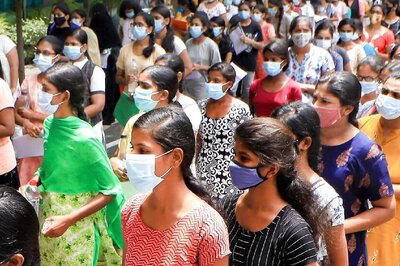
views
In today’s time, people have become health conscious about what to eat and how to work out. Similarly, when it comes to their weight and waistlines, people have a rough idea of where they want to be. But when it comes to losing weight, people want to shed the extra fat rapidly through strict diets and intense workouts. But is such weight loss sustainable and healthy?
Mihira AR Khopkar, celebrity, sports and Olympics nutritionist has explained it in detail. Speaking to The Indian Express, she explained that body weight is made up of so many components, like water, bones, muscles, cells, organs and tissues and not just fat.
“So, it’s not that elusive weight on the scale that we need to aim to drop but it’s really the ‘what’ of the weight you drop that matters," she added. She explained that losing 20 kg of mostly muscle would be far worse than packing on an additional 20 kg in weight. When aiming for weight loss, people should try to focus on retaining as much muscle as possible while reducing the amount of fat that they carry.
But how fast should the scale be moving? According to Khopkar, a well-written plan can result in losing about a kg per week. So, losing two to four kgs in a month on average is a good benchmark to keep in mind.
Though Khopkar also added that the real measures of fat loss are drops in body fat percentage, which can be assessed using body composition assessment. “It is a drop in waist circumference, a drop in hip circumference, and achieving the right waist and height ratio," she added.
The nutritionist also mentioned that losing body fat is not rocket science. Following a healthy diet, having a healthy lifestyle, working out five-six times a week, sleeping well, and ensuring there aren’t micronutrient deficiencies is a good start to their health journey.
She also cautioned about ensuring proper levels of micronutrients if aiming for a more ambitious weight loss goal. Khopkar said that people majorly focus on having carbohydrates, proteins and fats in their diet, but micronutrients also are equally important, even if they are needed by the body in small amounts. To ensure that a diet doesn’t ignore micronutrients, the nutritionist recommended having good amounts of vegetables and fruits or supplements.
Read all the Latest Lifestyle News and Breaking News here




















Comments
0 comment